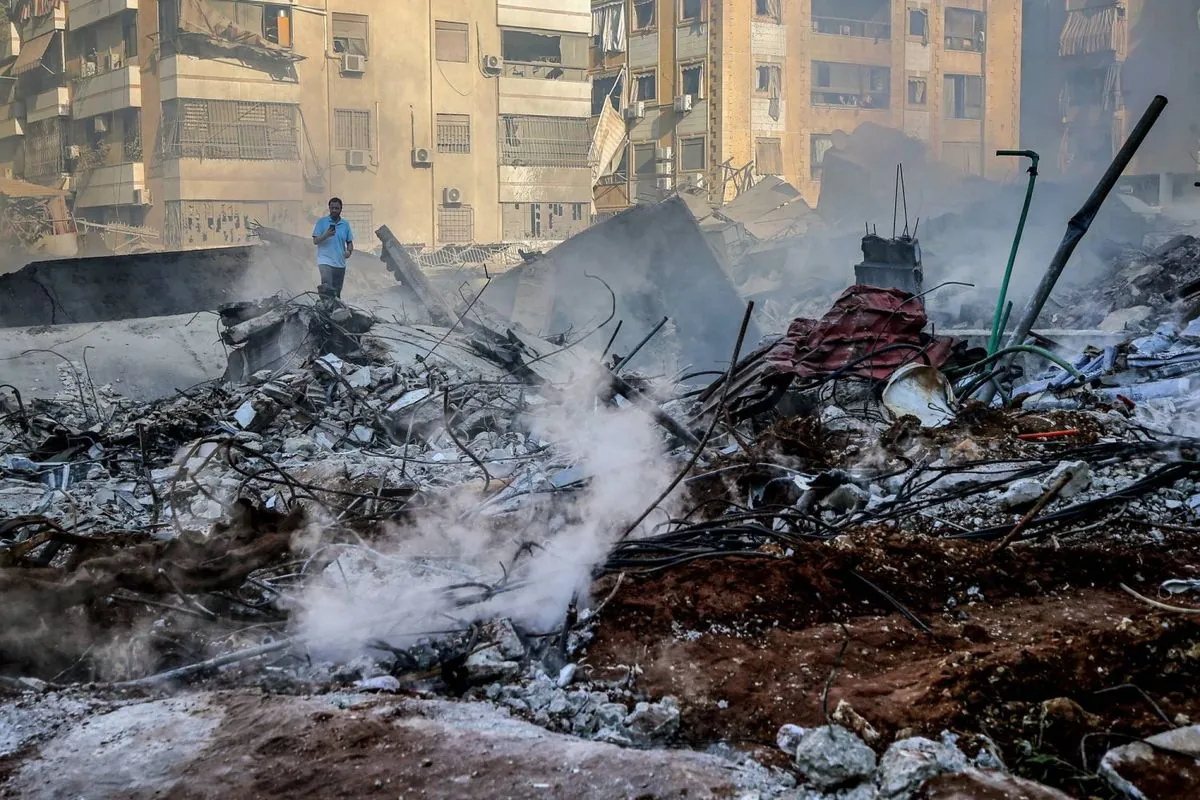Israel has significantly expanded its military operations in Lebanon and Gaza, marking a notable escalation in the ongoing conflict. The Israeli Defense Forces (IDF) conducted 12 airstrikes on Beirut's southern suburbs and, for the first time, targeted the Beddawi Palestinian refugee camp near Tripoli in northern Lebanon.
Hamas reported that an official from its military wing, along with his family, was killed in the Beddawi camp strike. This attack represents a significant expansion of Israel's operational range, as Tripoli is situated much farther north than previous strike locations.
The conflict between Israel and Lebanon has a long and complex history, dating back to 1948. The current escalation began in late September 2024, with Israel intensifying its strikes against Hezbollah, a powerful political and military organization founded in 1985. The IDF claims to have eliminated several high-ranking Hezbollah officials since the conflict's inception in October 2023.
According to Lebanon's National News Agency, at least six individuals lost their lives in the recent Israeli airstrikes. The IDF has also initiated ground operations in southern Lebanon, targeting Hezbollah infrastructure and dismantling tunnel systems near the Israeli border.
The ongoing hostilities have resulted in approximately 1,400 Lebanese casualties and the displacement of 1.2 million people. Lebanon, which already hosts the highest number of refugees per capita globally, now faces an additional humanitarian crisis.
"Special forces are carrying out targeted ground raids against Hezbollah infrastructure in southern Lebanon, destroying missiles, launchpads, watchtowers and weapons storage facilities."
In Gaza, Israeli strikes continue to impact civilian areas. The Palestinian Health Ministry reported that airstrikes in Beit Hanoun and the Nuseirat refugee camp resulted in at least nine fatalities, including two children. The Nuseirat camp, established in 1948, is one of the many densely populated areas in Gaza affected by the conflict.
The IDF has issued evacuation orders for Palestinians along the Netzarim corridor in central Gaza, an area that has been a point of contention in previous ceasefire negotiations. Residents are being directed to relocate to Muwasi, a coastal area designated as a humanitarian zone.
The Gaza Strip, home to approximately 2.1 million people as of 2024, has been under blockade since 2007. The current conflict has resulted in nearly 42,000 Palestinian casualties, according to the Palestinian Health Ministry, which was established in 1994.
As the conflict approaches its one-year mark, the international community continues to express concern over the escalating violence and its impact on civilian populations. The United Nations Interim Force in Lebanon (UNIFIL), present since 1978, faces increasing challenges in maintaining stability along the Blue Line, the border demarcation established in 2000.
The ongoing hostilities underscore the complex geopolitical landscape of the region, with historical conflicts dating back decades continuing to shape current events. As both sides suffer losses and civilian casualties mount, the need for a diplomatic solution becomes increasingly urgent.
